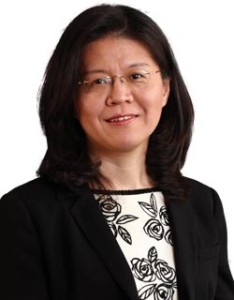Patent term extension (PTE) has been implemented in Taiwan since 1994, but recent changes to the Regulations Governing PTE and the Patent Examination Guidelines on PTE took effect on 1 April 2018.

Counsel
Lee and Li Attorneys-at-Law
Relevant provisions
According to article 53 of the Patent Act, an invention patent relating to a pharmaceutical or agrichemical, or their manufacturing processes, is eligible for PTE of up to five years, provided that the patent cannot be practised without a market approval (MA) in accordance with Taiwan laws and regulations, and that a first MA for practising the patent is obtained after publication of the patent.
According to the Regulations Governing PTE, the periods eligible for a request for PTE include:
- The period of foreign and domestic clinical trials or field tests conducted for the purpose of securing the first MA; and
- The period of applying for and obtaining the MA (also known as a regulatory review or product registration period).
Article 56 of the Patent Act also stipulates that the extended patent term only covers the active ingredient(s) and use identified in the first market approval.
Amendments to PTE regulations
The recent amendments include:
- Deleting the requirement that if the request for PTE is based on the time period of foreign clinical trials or field tests, in the event that a PTE based on these clinical trials or field tests has been requested and granted in a foreign country, the document(s) proving such extension must also be provided.
- Deleting the requirement that only the longest time period is taken for the field tests must be considered as the time period for conducting domestic and/or foreign field tests, if the field tests are
not sequential.
Whether a PTE based on clinical trials or field tests has been requested and granted in a foreign country is irrelevant to the PTE request in Taiwan. According to Agrichemical Field Test Guidelines, at least three field tests should be conducted, two of which should be full tests.
Exam guideline amendments
- Determination of active ingredient and first market approval. Under the previous guidelines, whether a market approval is a “first market approval” is determined on the basis of both the active ingredient(s) and use identified. The active ingredient is defined as the free form of the active ingredient (i.e., the compound per se According to the amended guidelines, different salts, esters or hydrates of the same chemical entity are considered as different active ingredients, and so market approvals obtained for different salts, esters or hydrates of the same chemical entity, even for the same use, are each regarded as a first market approval eligible for PTE.
- Clinical trial periods. Under the previous guidelines, the commencement and conclusion dates of a foreign clinical study are not clearly defined and are usually considered as the start and report dates of a foreign clinical study, respectively.According to the amended guidelines, the commencement and conclusion dates of a foreign clinical study are the start and completion dates set out in the clinical study reports in accordance with ICH (International Conference on Harmonization of Technical Requirements for Registration of Pharmaceuticals for Human Use). The determination of a domestic clinical trial period in the guidelines remains unchanged.
- Connection between claim scope and first market approval. Under the previous guidelines, for a compound patent, at least one claim should correspond to the active ingredient identified in the first market approval; for a first market approval containing two or more active ingredients, the claim must specifically describe all the active ingredients.
According to the amended guidelines, for a product patent, at least one claim should cover the active ingredient(s) in the first market approval. For example, it is feasible to extend a claim directed to a composition comprising compound A based on a first market approval for compounds A and B; however, it is not feasible to extend a claim directed to a composition claim consisting of compounds A and B based on a first market approval for compounds A, B and C.
After amendment, the definition of active ingredient(s) has been changed and the scope of the extended patent term may be narrowed in view of article 56 of the Patent Act. Although market approvals obtained for different derivatives of the same compound can be regarded as different first market approvals based on which multiple PTE cases can be filed, the scope of the extended patent term is affected because the scope of the active ingredient identified in the first MA for PTE is limited to a specific salt, hydrate, ester, or isomer form. Accordingly, a PTE based on a first market approval for salt A will be more limited in scope than under the previous guidelines.
Wang Shu-Ching is a counsel at Lee and Li Attorneys-at-Law in Taipei
LEE AND LI Attorneys at Law
7/F, 201 Tun Hua N. Road
Taipei, Taiwan 10508, ROC
Contact details:
Tel: 886-2-27153300 (ext. 2476)
Fax: 886-2-27188497
Email: shuchingwan@leeandli.com
www.leeandli.com

























